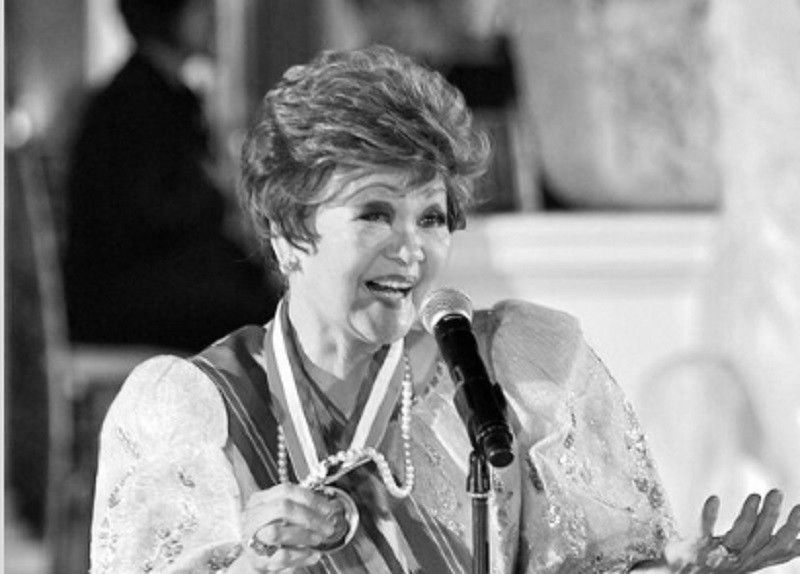'First Lady of Philippine Television' Sylvia La Torre dies at 89

MANILA, Philippines — Singer Sylvia La Torre, known by many as "Queen of Kundiman" and "First Lady of Philippine Television," passed away at the ripe age of 89, leaving behind a legacy in music and entertainment that spanned decades.
Her granddaughter and fellow actress Anna Maria Perez de Tagle, best known for appearing in "Hannah Montana" and the "Camp Rock" films, confimed her grandmother's death on social media.
"My grandmother was my first inspiration when it came to singing and acting. She was my first vocal coach and taught me all of her kundimans. Thank you for passing on your love of music to me and I will surely continue your legacy," Anna wrote in the posts' captions.
In the same posts, Anna said that Sylvia died peacefully in her sleep in the morning of December 1, and that she passed in the company of her husband of 68 years Dr. Celso Perez de Tagle, and her children, Artie, Bernie, and Che-Che.
"Gone too soon but always in our hearts. Your song has ended but your melody will linger on. Love you Mama Cita," Anna also wrote, later re-sharing on Facebook a 2016 video of them singing "Sa Kabukiran."
Among those who had offered their condolences were theater legend Lea Salonga, stage actor Jon Jon Briones, Disney actress Christy Carlson Romano, and photographer Niccolo Cosme.
The daughter of Filipino artist Leonora Reyes and director Olive La Torre, Sylvia began her career in music at the young age of five after winning a local singing competition in Manila, appearing in her first film "Ang Maestra" two years later and then her stage debut after another two years.
Sylvia was also a scholar at University of Santo Tomas’ Conservatory of Music and became a regular performer in Manila Grand Opera House.
Songs like "Mutya ng Pasig," "Waray-Waray," and "Maalala Mo Kaya," among hundreds others, led her to being called the "Queen of Kundiman," while her "First Lady of Philippine Television" title originated from her co-hosting of "Oras ng Ligaya" during the 1960s.
RELATED: Meet Philippine cinema's forgotten Andres Bonifacio
- Latest
- Trending















 Partner
Partner













